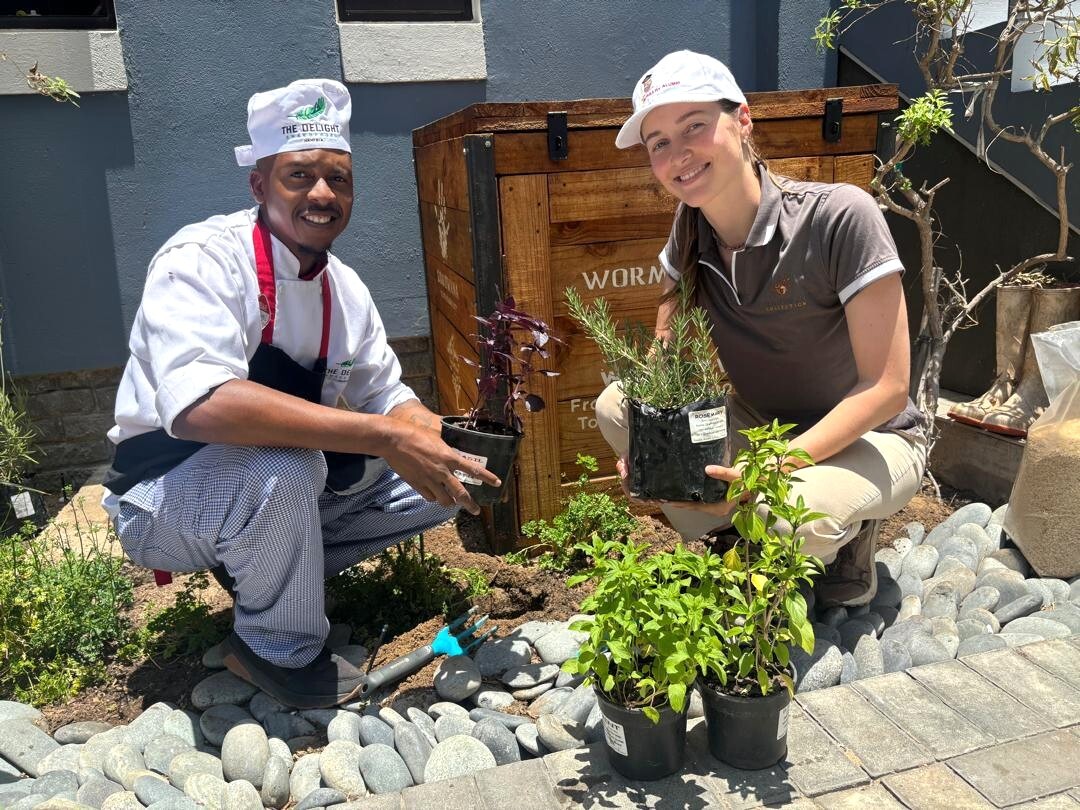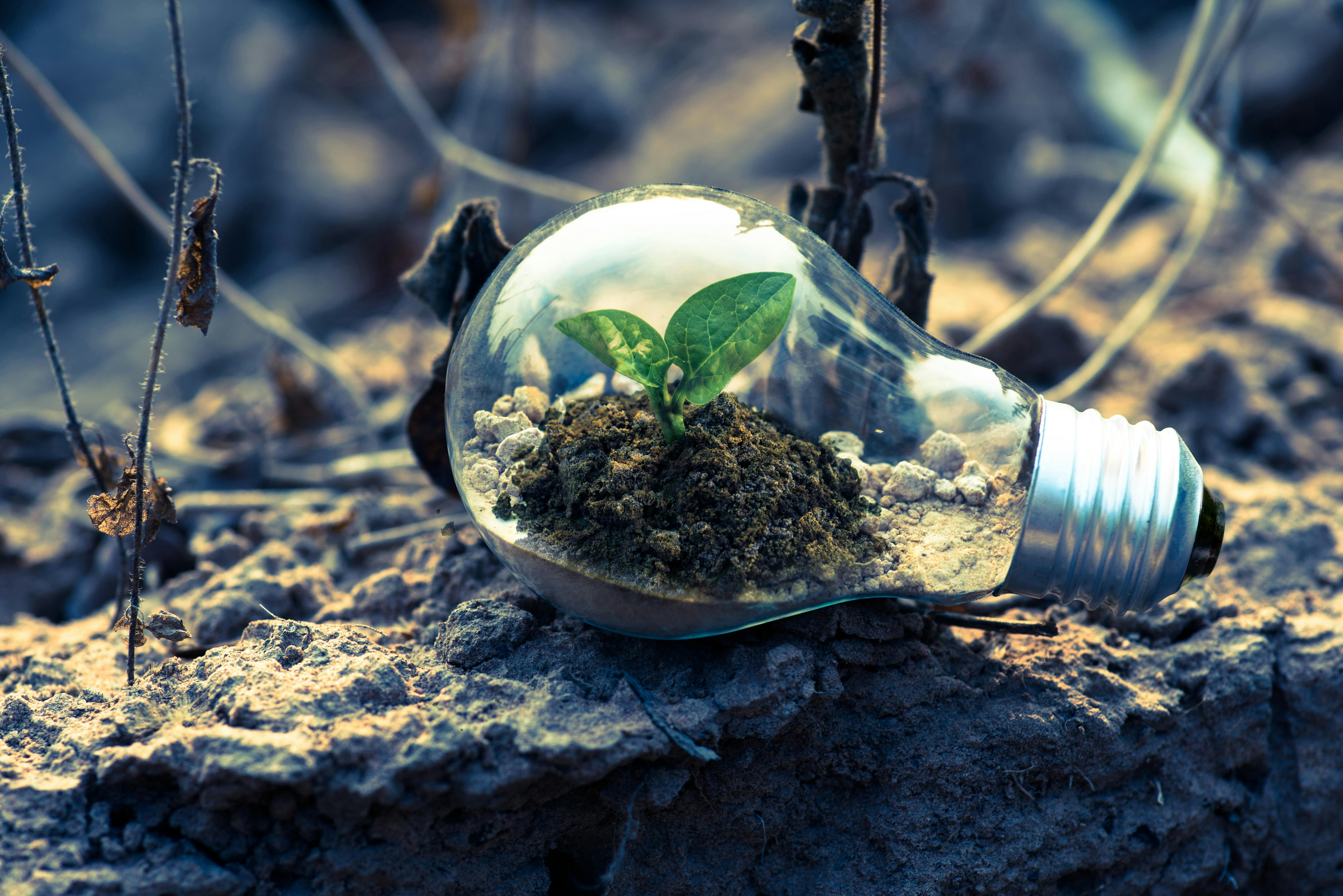At Gondwana Collection Namibia, we believe that sustainability is far more than a concept – it is practical practice shaped by the commitment to responsible tourism while also protecting our environments and enriching our offerings as a business.
From each ray of sun captured by solar systems to every drop of water poured onto plants, we remain dedicated to implementing and exploring ways for a greener future.
Renewable Energy
As Namibia receives over 300 days of sunshine a year, we’ve invested in equipping 95% of our properties with solar panels to utilize this abundant renewable resource. These solar panels provide more than half of our lodges’ energy needs and have also been strategically integrated into each property’s design to ensure optimal placement while blending in with the lodges’ unique aesthetic and minimising our environmental footprint. In partnership with SolarSaver, a local solar energy company, solar production and usage are monitored, which also helps us measure data of our impact on the environment by using renewable energy sources.
Moreover, properties such as The Delight Swakopmund make use of hybrid solar-powered heat pumps to ensure more energy-efficient water-heating. Additionally, Palmwag Lodge also utilises a solar-powered water heating system for its staff accommodation. 
Solar panels at Palmwag Lodge. Photo by Gondwana Collection Namibia
Waste Management
Serving as vital to our efforts, waste management plays a key role in preventing pollution and protecting our ecosystems. Lodge waste is sorted according to material type, such as glass, plastic, paper, carton, and tins, for recycling by external waste management companies. For example, crushed glass is incorporated into the offering structures, particularly for The Desert Grace’s walkways. In addition, crushed glass is also mixed into building materials for waterholes in Gondwana Canyon Park and Gondwana Kalahari Park, which reduces the carbon emissions associated with using only cement during building.
Etosha King Nehale and The Desert Grace’s chalets are built using sandbags, which also offer outstanding sound and heat insulation qualities. Reverie Kalahari Pod is entirely made of wood and completely solar-run, while most of our properties make use of hybrid solar systems, and Desert Whisper is reintroducing e-biking as part of an exclusive experience to explore its awe-inspiring surroundings in an eco-friendly manner.
Thanks to Gondwana’s partnerships with multiple waste management companies, sustainable and responsible waste disposal is made possible across the country. These companies include Rent-a-Drum that provides services to Gondwana’s central, Kunene, Etosha and north-eastern Collections , as well as Grootfontein Recycling in Etosha, and John Henry Waste Management in the southern Collections. In addition, our used cooking oil is recycled by BEE Biofuel and used engine oil by OilTech, while our electronic waste is recycled by NamiGreen.
Our properties repurpose food waste in various ways. For instance, properties in the Canyon Collection started implementing the bokashi composting process. At The Delight Swakopmund, we recently started composting with Vermicompost, which uses Red Wriggler worms to transform kitchen food waste into garden fertilizer. Across our other properties, food waste is repurposed in smaller compost heaps and used for pig feed.
Gondwana minimises the use of single-use plastic items in restaurants, bars, and guest rooms. Included in this initiative are both paper and compostable plastic straws introduced to the lodges, wax paper wrapping used for lunch packaging, and instead of bottled water, The Weinberg Windhoek, Kalahari Anib Lodge and Zambezi Mubala Lodge offer filtered water dispensers that invite guests to refill their reusable bottles.
Gondwana also embraces upcycling, turning what one may believe to be forlorn items into valuable ones. For example, the creative and innovative transformation of discarded items into decorative material is championed through The Narrative Namibia, Gondwana's online store, and incorporated into our lodge designs, proving that sustainability and style can go hand in hand.

The Desert Grace's walkways made with crushed glass. Photo by Peter Orsel
Water Recycling
Water is a precious resource, especially in a semi-arid country such as Namibia. Gondwana aims to ensure that water is used wisely and efficiently, whether supplying operations with clean water or nourishing lodge gardens with grey water.
Furthermore, 80% of our properties are now equipped with wastewater treatment plants that treat used water for irrigating lodge gardens and lawns. Additionally, advanced water monitoring systems installed at Damara Mopane Lodge in collaboration with Sigmotec enable us to further monitor water usage to ensure efficiency.

Recycling plant at Damara Mopane Lodge. Photo by Gondwana Collection
While these are only some of the efforts that are part of our sustainable journey, they contribute to the Sustainable Development Goals (SDG’s), a global call to action to protect the planet and the recognition of the impact of development on social, economic, and environmental aspects.
Through our sustainability initiatives and partnerships, we aim to compound on national efforts that invest in: SDG 3: Good Health and Well-Being, SDG 6: Clean Water and Sanitation, SDG 7: Affordable and Clean Energy, SDG 9: Industry, Innovation, and Infrastructure, SDG 11: Sustainable Cities and Communities, SDG 12: Responsible Consumption and Production, SDG 13: Climate Action, SDG 15: Life on Land, and SDG 17: Partnerships for the Goals.
Gondwana’s eco-conscious decisions and ongoing investments form a great part in greener hospitality and Namibia – by reflecting our operational values through providing exceptional and meaningful services and preserving Namibia’s biodiversity-rich and unique environments for future generations to come.




SUBMIT YOUR COMMENT